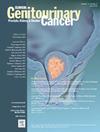Evaluation of the Prognostic Role of TP53 Gene Mutations in Prostate Cancer Outcome: A Systematic Review and Meta-Analysis
IF 2.7
3区 医学
Q3 ONCOLOGY
引用次数: 0
Abstract
Introduction
Prostate cancer, 1 of the most common cancers in men, is influenced by age, genetics, race, and lifestyle. The TP53 gene, encoding the p53 protein crucial for cell cycle regulation and DNA repair, is frequently mutated in metastatic prostate cancers. These mutations impact prognosis and resistance to treatments, underscoring the role of genetic factors in disease progression and therapeutic challenges.
Methods
Databases such as PubMed, Scopus, and ISI were searched using the keywords "prostate cancer," "P53," "TP53," "survival," and "prognosis," along with manual searches in other sources. Initial screening and selection of articles were conducted independently and blinded by 2 reviewers, focusing on titles abstracts, and full texts when necessary. The Newcastle-Ottawa Scale (NOS) was used for full-text evaluation. Data were analyzed using STATA 11, with heterogeneity assessed using the I² index.
Results
Overall survival (OS) for prostate cancer patients with TP53 mutations was approximately 13% lower than for those without mutations at 1 year, 20% lower at 3 years, and 16% lower at 5 years. TP53 mutations were also associated with faster disease progression and a 15% reduction in progression-free survival (PFS) over 1 year. The hazard ratio (HR) for death in patients with TP53 mutations was 1.76, and for PFS, it was 1.62, indicating a 76% increased risk of death and a 62% increased risk of disease progression.
Conclusion
TP53 mutations are associated with shorter survival and faster disease progression in prostate cancer, underscoring the importance of precise evaluation and management of these mutations in treatment.
评估 TP53 基因突变在前列腺癌预后中的作用:系统回顾与元分析》。
导言:前列腺癌是男性最常见的癌症之一,受年龄、遗传、种族和生活方式的影响。在转移性前列腺癌中,编码对细胞周期调节和 DNA 修复至关重要的 p53 蛋白的 TP53 基因经常发生突变。这些突变会影响预后和抗药性,突出了遗传因素在疾病进展和治疗挑战中的作用:方法:使用关键词 "前列腺癌"、"P53"、"TP53"、"生存 "和 "预后 "对 PubMed、Scopus 和 ISI 等数据库进行检索,并对其他来源进行人工检索。文章的初步筛选由两名审稿人独立完成,并进行盲审,重点审查标题摘要,必要时审查全文。全文评估采用纽卡斯尔-渥太华量表(NOS)。使用 STATA 11 对数据进行分析,并使用 I² 指数评估异质性:结果:TP53基因突变的前列腺癌患者的总生存期(OS)在1年时比无突变者低约13%,3年时低20%,5年时低16%。TP53 基因突变还与疾病进展速度加快以及一年内无进展生存期(PFS)缩短 15% 有关。TP53突变患者的死亡危险比(HR)为1.76,PFS为1.62,表明死亡风险增加76%,疾病进展风险增加62%:结论:TP53 基因突变与前列腺癌患者生存期缩短和疾病进展加快有关,强调了在治疗过程中对这些基因突变进行精确评估和管理的重要性。
本文章由计算机程序翻译,如有差异,请以英文原文为准。
求助全文
约1分钟内获得全文
求助全文
来源期刊

Clinical genitourinary cancer
医学-泌尿学与肾脏学
CiteScore
5.20
自引率
6.20%
发文量
201
审稿时长
54 days
期刊介绍:
Clinical Genitourinary Cancer is a peer-reviewed journal that publishes original articles describing various aspects of clinical and translational research in genitourinary cancers. Clinical Genitourinary Cancer is devoted to articles on detection, diagnosis, prevention, and treatment of genitourinary cancers. The main emphasis is on recent scientific developments in all areas related to genitourinary malignancies. Specific areas of interest include clinical research and mechanistic approaches; drug sensitivity and resistance; gene and antisense therapy; pathology, markers, and prognostic indicators; chemoprevention strategies; multimodality therapy; and integration of various approaches.
 求助内容:
求助内容: 应助结果提醒方式:
应助结果提醒方式:


